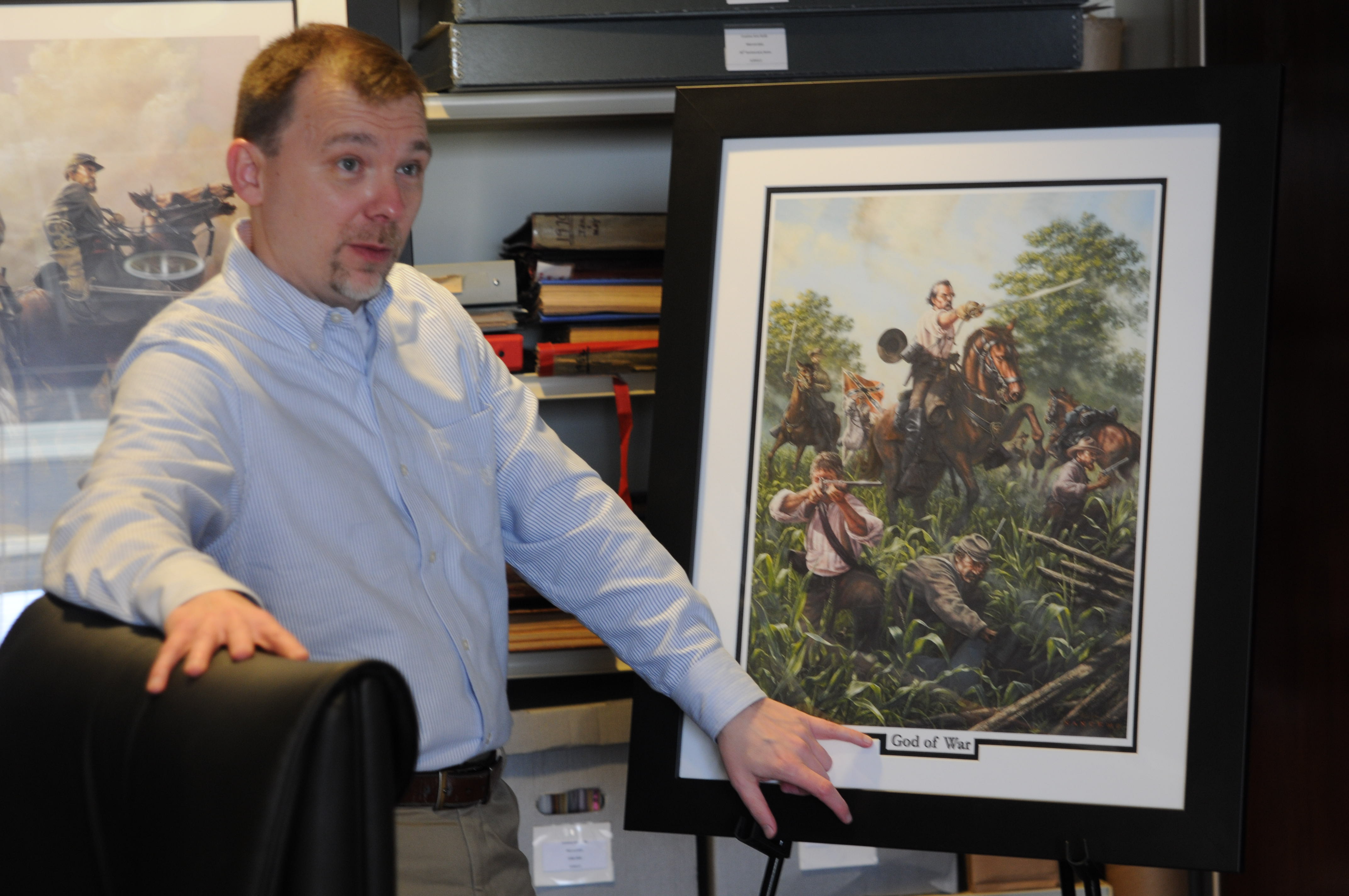View our Civil War Sequicentennial site
IF YOU GOWhat: History lecture on Confederate Lt. Gen. Nathan Bedford ForrestWhen: 6 p.m.-8 p.m. todayWhere: Room 105 of Dalton State College's James E. Brown Center, 550 College Drive, Dalton, GACost: Free
Was Confederate Lt. Gen. Nathan Bedford Forrest a brilliant military tactician, a bootstraps upward-bound millionaire and model of Southern manhood for generations after the Civil War?
Or was he a slave trader at least partially responsible for the massacre of black troops and the founder of the Ku Klux Klan?
Both.
Dalton State College professor John Fowler will explore these and more biographical details of Forrest, a complicated and controversial figure, tonight in a talk at Dalton State College.
Fowler, who has studied and written on local Civil War events, finds Forrest the man and how he's been considered by succeeding generations intriguing.
"I think we have a tendency to whitewash our history," Fowler said. "We don't want to deal with the ugly side of our past."
Fowler will start the talk with the basic facts about Forrest -- where he was born, his work and family life before the war, then his military leadership and exploits during the conflict followed by his post-war life, which included the KKK founding.
He will look at how the soldier's legacy has been used, interpreted and re-imagined as now more than a century has passed since his death in 1877.
Forrest's image has been used by different groups for different reasons over time, he said.
The general served as inspiration to his troops and was seen as a symbol of the South. He rose from meager beginnings to become a pre-war millionaire. With no substantial military training, he was a wildly successful cavalry officer.
But he made some of that fortune trading slaves. There is debate about how much of a role he played in what came to be called the "Fort Pillow Massacre" at Henning, Tenn., where surrendering black soldiers were killed at the end of the fighting by Forrest's troops.
"He's a lightning rod in Southern society today," Fowler said.
As recently as 2013, the Memphis City Council renamed the city park Nathan Bedford Forrest Park to Health Sciences Park. Opponents of the name change filed a lawsuit challenging the decision. KKK members rallied in downtown Memphis to protest the name change.
The lecture continues Civil War anniversary presentations held at Dalton State and at the Bandy Heritage Center for Northwest Georgia, the community historical outreach branch of the college. Area 150th anniversaries began in 2013 and continue chronologically as dates of Union troop advancements to Atlanta continue through this year.
Donated post-Civil War and contemporary artwork from the Bandy Center will be on display at an exhibit later this month. Pieces related to Forrest are being shown at tonight's lecture. The project "Art of the Lost Cause" is to be a traveling exhibit that will circulate in Georgia later this year after the Dalton event, said Brian Hilliard, the center's project director.
Hilliard said the center, founded in 2008, focuses on three areas of local history -- Cherokee history and heritage, the Civil War and the local carpet industry.
Those three historical areas have "shaped the character of the region," Hilliard said.
Contact staff writer Todd South at tsouth@timesfreepress.com or 423-757-6347. Follow him on Twitter @tsouthCTFP.

